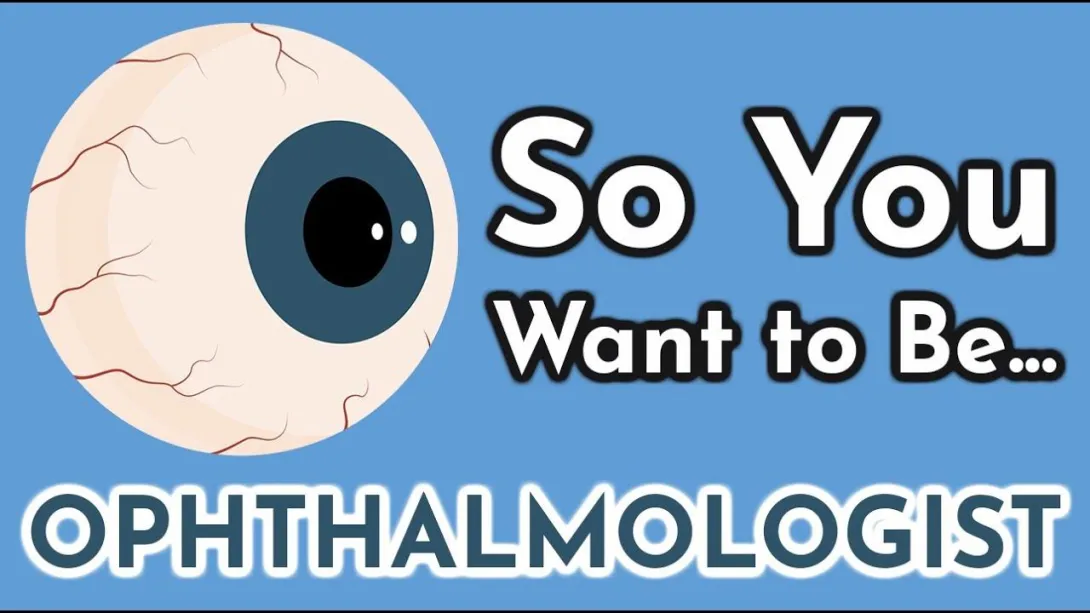Hey future doctors! If you're a college student planning your medical journey, you've probably wondered what type of doctor you want to be. While it might seem early to think about specialties, let me introduce you to an amazing field you might not have considered yet: ophthalmology – the science of eye care. Before you say "ophthal-what?", let me show you why this could be your perfect path in medicine.
What Actually Is Ophthalmology?
First things first – ophthalmologists are medical doctors who specialize in eye and vision care. Think of them as the ultimate eye experts. They're not the same as optometrists (who do vision tests and prescribe glasses). Ophthalmologists perform surgeries, treat diseases, and can literally help people see again. Pretty cool, right?
Why You Should Care (Even as a College Student)
You might be thinking, "I'm still trying to pass organic chemistry – why think about specialties now?" Here's why: understanding different medical paths can help shape your college experiences and even boost your med school application. Plus, ophthalmology is a field that loves early interest and research involvement – something you can start right now in college.
The Perfect Mix of Science and Technology
Remember those cool robotics or virtual reality projects you've seen? Ophthalmology is full of that kind of cutting-edge tech. If you're the type who loves both science and gadgets, this field is a tech enthusiast's dream. You'll work with lasers, advanced imaging systems, and some of the most precise surgical equipment in medicine. For those computer science or engineering majors considering medicine – this specialty could be your sweet spot.
Work-Life Balance (Yes, It Exists in Medicine!)
Let's be real – you've probably heard horror stories about doctors working crazy hours. While every medical career has its demands, ophthalmology is known for having one of the best lifestyle balances in medicine. Most ophthalmologists work regular business hours and have predictable schedules. This means you can have a life outside of medicine – whether that's starting a family, pursuing hobbies, or traveling.
Be Your Own Boss
One of the most exciting aspects of ophthalmology is the opportunity to run your own practice. Many ophthalmologists choose to be their own boss by opening private practices. Take Dr. Liu, a modern vision correction and cataract surgeon in Omaha. A Harvard graduate, he’s built a successful private practice with full control over their schedule, the types of procedures they perform, and how they care for their patients.
Unlike many other medical specialties, ophthalmology has a strong tradition of private practice ownership. This means you can:
Create your ideal work environment
Build your own team
Set your own schedule
Invest in the latest technology you're passionate about
Develop long-term relationships with patients
Build wealth through business ownership, not just salary
The business side of medicine isn't taught much in medical school, but ophthalmology offers a clear path to entrepreneurship for those interested in combining medical expertise with business acumen.
Making a Visible Difference (Pun Intended)
Imagine helping a grandmother see her grandchild's face clearly for the first time, or enabling a young artist to continue their passion. Ophthalmologists change lives in incredibly tangible ways. The impact is immediate and profound – patients often notice improvement right after treatment. For those of you drawn to medicine to help others, this immediate positive impact is incredibly rewarding.
The Path to Getting There.
Here's what your journey might look like:
1. Rock your pre-med requirements in college
2. Get involved in eye-related research or volunteer work (many eye clinics welcome college volunteers!)
3. Head to medical school (4 years)
4. Complete an ophthalmology residency (3 years)
5. Optional: Choose a subspecialty fellowship (1-2 years)
What You Can Do Right Now.
Even as a college student, there are ways to explore if ophthalmology might be right for you:
- Join your university's pre-med club
- Look for research opportunities in your college's biology or neuroscience departments
- Volunteer at local eye clinics or vision screening events
- Shadow an ophthalmologist (many are happy to mentor interested students)
- Take relevant electives like neuroscience, optics, or computer vision
Future Outlook: Why This Field is Growing.
With an aging population and increasing screen time use, eye care is becoming more important than ever. New technologies are constantly emerging, making this an exciting time to enter the field. Plus, ophthalmology is at the forefront of many medical innovations, from artificial intelligence in diagnostics to gene therapy for inherited eye conditions.
The Sweet Perks.
Let's talk benefits:
- Competitive salary (yes, you can pay off those student loans!)
- Regular working hours (rare in medicine!)
- Opportunity to use cutting-edge technology
- Chance to help people in a very direct way
- Options to work in different settings (private practice, hospitals, research)
- Potential to combine with other interests (like research, teaching, or global health)
Take the First Step.
You don't need to commit to ophthalmology right now – that's not what college is about. But keeping it in mind might help shape some of your choices. Take that extra neuroscience class, join that research lab, or reach out to an ophthalmologist for shadowing. Who knows? You might just find your future calling!
Remember, the best doctors often discover their specialty by exploring different options early. Whether or not you ultimately choose ophthalmology, understanding what's out there will help you make better decisions about your medical career.
Want to learn more? Your pre-med advisor can help connect you with resources and opportunities to explore this exciting field. Your journey to becoming a doctor is just beginning, and ophthalmology might be the perfect destination!

Comments